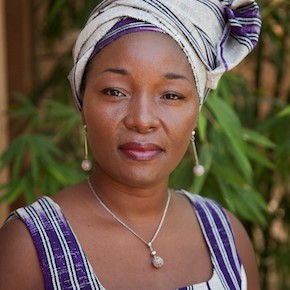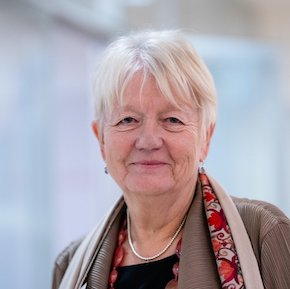This second session of the speaker series - co-hosted with the Charité University Hospital Berlin - was devoted to highlighting the importance of integrating insights from the social sciences into public health surveillance approaches to better avert and manage epidemic and pandemic risks. Understanding the political context in which decision-making takes place; exploring how culture, identity and (social) media affect human health-seeking behaviours; effectively communicating risk; and finding ways of engaging our communities are crucial for building trust for cooperation in the face of health emergencies. Our two speakers, political scientist Professor Michael Bang Petersen and social anthropologist Doctor Julienne Ngoundoung Anoko presented their respective research and experiences in the direct engagement with decision-makers and affected communities during health emergencies. The event was moderated by Professor Ilona Kickbusch.
Speakers
Dr Julienne Ngoundoung Anoko

WHO AFRO Teamlead Social Sciences/Risk Communication & Community Engagement for the Health Emergencies Programme in Dakar, Senegal
Dr Anoko is a social anthropologist (PhD) from the Sorbonne University in France. She is trained in epidemiology and public health, and gender and health (MS) at the University Rey Juan Carlos of Spain. For more than 20 years, she has been applying social science research, approaches and methodologies during public health emergencies and development interventions for accountability with communities. As frontline outbreaks responder (Ebola, Marburg, H1N1, Zika, Plague, COVID-19), Dr Anoko has worked with WHO, UNICEF, UNMEER, and supported several Governments, and NGOs in Europe, Latin America and the Caribbean, and Africa. She has published several papers and co-edited books. Dr Anoko is recipient of the “Research and Innovation 2015 Award” from the French Red Cross Humanitarian Fund and the “Marsh Award For Anthropology In The World, 2017” from the UK Royal Institute of Anthropology.
Professor Michael Bang Petersen

Professor of Political Science at Aarhus University, Denmark and Founder of the project HOPE – How Democracies Cope with COVID-19.
Michael Bang Petersen’s research is within the field of political psychology. He is committed to interdisciplinarity and utilizing theories and methods from cognitive and evolutionary psychology to illuminate problems in political science. He is the founder of the HOPE project that investigates the interrelationship between the trajectory of the COVID-19 pandemic, the decisions of governments and international organisations, the media and social media landscapes and citizens' behavior and well-being. He has published around 100 peer-reviewed articles as well as two books and multiple book chapters. During the COVID-19 pandemic, Professor Bang Petersen was one of the most cited researchers in the Danish media and he served as a main scientific advisor to the Danish government on the behavioral aspects of the pandemic. In 2017, he received the most prestigious early career award in his research field, the Erik Erikson Award, by the International Society for Political Psychology, and he was appointed to The Royal Danish Academy of Sciences and Letters.
Professor Ilona Kickbusch

Founder and Chair of the International Advisory Board of the Global Health Centre at the Graduate Institute Geneva, Switzerland
Prof. Ilona Kickbusch is the Founder and Chair of the International Advisory Board of the Global Health Centre at the Graduate Institute Geneva, Switzerland. She is a member of the Global Preparedness Monitoring Board, the WHO Council on the Economic of Health for All, Council Chair to the World Health Summit in Berlin and vice-president of the European Health Forum Gastein. She has been involved in German G7 and G20 activities relating to global health and the global health initiatives of the German EU presidency in 2020. She presently co-chairs the T7 2022 task force on global health. She chaired the international advisory board for the development of the German global health strategy and advised on the establishment of the WHO Hub on Pandemic and Epidemic Intelligence. She works with EU presidencies on global health on a continuous basis.
